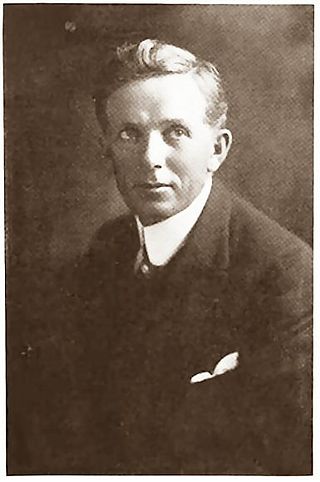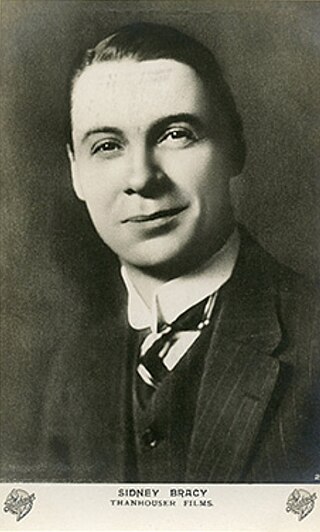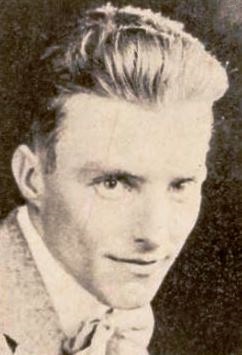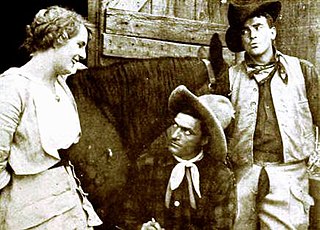Christian most often refers to:
A fugitive is a person fleeing from arrest.

William Arnold Ridley, OBE was an English playwright and actor, earlier in his career known for writing the play The Ghost Train and later in life in the British television sitcom Dad's Army (1968–1977) as the elderly bumbling Private Godfrey, as well as in spin-offs including the feature film version and the stage production.

Victor David Sjöström, also known in the United States as Victor Seastrom, was a pioneering Swedish film director, screenwriter, and actor. He began his career in Sweden, before moving to Hollywood in 1924. Sjöström worked primarily in the silent era; his best known films include The Phantom Carriage (1921), He Who Gets Slapped (1924), and The Wind (1928). Sjöström was Sweden's most prominent director in the "Golden Age of Silent Film" in Europe. Later in life, he played the leading role in Ingmar Bergman's Wild Strawberries (1957).

Herbert Brenon was an Irish-born U.S. film director, actor and screenwriter during the era of silent films through 1940.
Seawolf, Sea wolf or Sea Wolves may refer to:
Nothing but the Truth may refer to:

George H. Melford was an American stage and film actor and director. Often taken for granted as a director today, the stalwart Melford's name by the 1920s was, like Cecil B. DeMille's, appearing in big bold letters above the title of his films.

Chester Cooper Conklin was an early American film comedian who started at Keystone Studios as one of Mack Sennett’s Keystone Cops, often paired with Mack Swain. He appeared in a series of films with Mabel Normand and worked closely with Charlie Chaplin, both in silent and sound films.
Vanity Fair may refer to:

Sidney Bracey was an Australian-born American actor. After a stage career in Australia, on Broadway and in Britain, he performed in more than 320 films between 1909 and 1942.

John B. "Jack" O'Brien was an American actor and film director of the silent era. He appeared in more than 80 films between 1909 and 1936. He also directed 53 films between 1914 and 1926.

Lynn Fairfield Reynolds was an American director and screenwriter. Reynolds directed more than 80 films between 1915 and 1928. He also wrote for 58 films between 1914 and 1927. Reynolds was born in Harlan, Iowa and died in Los Angeles, California, from a self-inflicted gunshot wound.

Bertha Muzzy Sinclair or Sinclair-Cowan, néeMuzzy, best known by her pseudonym B. M. Bower, was an American author who wrote novels, fictional short stories, and screenplays about the American Old West. Her works, featuring cowboys and cows of the Flying U Ranch in Montana, reflected "an interest in ranch life, the use of working cowboys as main characters, the occasional appearance of eastern types for the sake of contrast, a sense of western geography as simultaneously harsh and grand, and a good deal of factual attention to such matters as cattle branding and bronc busting." She was married three times: to Clayton Bower in 1890, to Bertrand William Sinclair in 1905, and to Robert Elsworth Cowan in 1921. However, she chose to publish under the name Bower.

Chip of the Flying U is a 1914 American short silent Western film directed by Colin Campbell and starring Tom Mix. It was produced by Selig Polyscope Company and distributed by the General Film Company.
Chip of the Flying U is a 1939 American Western film directed by Ralph Staub and starring Johnny Mack Brown. It was produced and distributed by Universal Pictures and is a remake of their 1926 silent epic of the same name starring Hoot Gibson.

King of the Rodeo is a 1929 American silent Western film directed by Henry MacRae and produced by and starring Hoot Gibson. It was distributed through Universal Pictures.

Chip of the Flying U is a 1926 American silent Western comedy film based on a novel by Bertha Muzzy Sinclair. It was directed by Lynn Reynolds and starred Hoot Gibson. Universal Pictures produced and released the film.
This page is based on this
Wikipedia article Text is available under the
CC BY-SA 4.0 license; additional terms may apply.
Images, videos and audio are available under their respective licenses.











